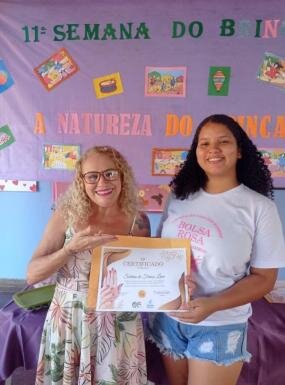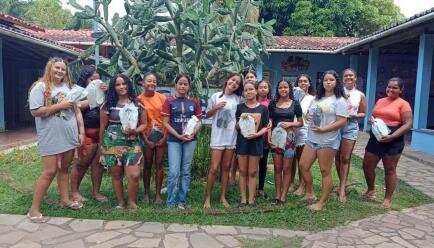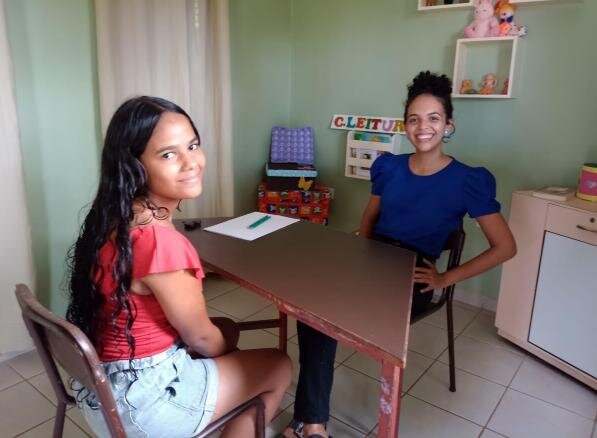By Tidy Minghetti | Project coordinator
According to the World Bank, the gaps between boys’ and girls’ students are starker in countries affected by fragility, conflict, and violence (FCV). In FCV countries, girls are 2.5 times more likely to be out of school than boys, and at the secondary level, are 90% more likely to be out of secondary school than those in non-FCV contexts[1]. And according to UNESCO, also the Coronavirus pandemic has had a huge impact on girls, as it happened with the Ebola epidemic, with an increased risk of sexual exploitation, early pregnancy and early and forced marriage. Moreover, the economic hardships caused by the crisis are inducing some families to invest less in girls’ education beside increasing the girls’ domestic and caring responsibilities[2]. Due to the covid-19 pandemic, according UNESCO, at least 12 million girls might never come back to school[3] and 10 million additional girls may be a risk of child marriage[4].
Why is it so important to educate girls?
First of all because it is their intrinsic right, as enshrined in the Universal Declaration of Human Rights and the Convention on the Rights of the Child[5].
Secondly because girls’ education promotes sustainable development. When girls gain access to education they acquire important knowledge that gives them greater potential for employment and income-earning as adults. Even with limited schooling, the impact of education can be observed. Studies show that for each additional year of schooling, a girl in a low-income country will increase her future income even though the extent of this increase varies according to the methodology applied. According to the latest studies endorsed by UNICEF and the World Bank, each additional year of education contributes to a 18% increase in GDP per capita at national level and to a 20% increase in individual income, with higher return rates for women than for men, while increasing the secondary education of girls by 1% generate a 0.3% increase in the annual per capita growth rate of GDP.
Countries with greater gender equality and fewer gender differences in primary and secondary schools are more likely to have higher economic growth. Education also improves women’s status within the family, empowers them to make their own choices and gives them more control over resources, control that increases with their level of education.
The impact on sustainable development is achieved not only through an increase in GDP but also through education itself as mothers who attended school themselves make greater efforts to ensure that their own children attend school, and health thanks to family planning, the importance attributed to prenatal care, vaccines, nutrition and doctors’ consultations: one additional year of school reduces infant mortality rate by 5-10%. Education for girls can therefore be the starting point of an upward spiral and lead women and their families out of poverty.
Finally, with adequate education, most early and combined marriages could be prevented. Each year of secondary education may reduce the likelihood of marrying before the age of 18 by five percentage points or more in many countries. For girls who studied for 7 years, the age of marriage is postponed by 4 years and women who completed secondary education on average have 2.3 children fewer than women with no education. If all the girls in low and middle-income countries completed primary school, this would reduce the under-5 mortality by 15% and if all of them completed secondary school this would reduce it by 49%. Educated women are also more likely not to justify their husband’s violence and dangerous practices such as genital mutilations and can become active leaders of change in their communities. On the other side, child marriage reduces the child bride’s future earnings by 9%[6].
In general, the cost-to-benefit ratio for primary school is higher than for lower and upper secondary education. However, there are two exceptions, which are the reduction of the age at first birth for which it is 40% more cost-effective to invest in lower secondary than in primary education, and the increase in the use of media[7].
Mission Bambini Pink Bags Project in Brazil
The local partner is “Casa Dos Sonhos” located in Paraiba, with which Mission Bambini has been working since 2003 in several interventions to support young women in their educational and professional training and in their intellectual, physical, emotional, social, and cultural development.
'Casa dos Sonhos' is the only valid reference in the area capable of caring for the education, health, safety, and providing emotional and social attention to the minors. “Casa Dos Sonhos” is a space where children and adolescents can learn, play, inquire, dream, and participate. It is a place that promotes moments of sharing, reflection, dialogue, learning arts and sports, and a place for healthcare and counselling.
The house continues to provide possible and suitable alternatives to the reality of children and young people and plays a prominent role in promoting a culture of peace, conducting an educational process based on essential values for the formation of conscious, efficient, and responsible citizens, starting from early childhood.
The Pink Bags project aims to provide support to adolescent girls and young women in situations of poverty and social vulnerability through scholarships and training courses, enabling them to pursue qualified studies at the fundamental, middle, and higher education levels. The goal is to help them develop their skills and competencies, providing greater opportunities for inclusion in the labour market. The girls will receive financial support as well as personalized guidance and group support on emotional and intellectual levels to foster their perseverance and overcome obstacles, thereby reducing the risk of dropout. Girls with greater socio-economic needs and who demonstrate interest and commitment to education will be selected, ensuring that their families actively participate in the educational process in a responsible manner.
An educational project focused on adolescent girls and young women will allow them to continue their studies and attain a level of education beneficial for themselves and their entry into the job market. This also ensures human development by addressing socio-emotional aspects
During 2023 the 18 girls involved in the Pink Bags project had the opportunity to take part of the following activities:
Outcomes:
[1] Source: World Bank https://www.worldbank.org/en/topic/girlseducation
[2] Source: UNESCO https://en.unesco.org/news/covid-19-school-closures-around-world-will-hit-girls-hardest
[3] Source : UNESCO https://en.unesco.org/covid19/educationresponse/girlseducation
[4] Source: UNICEF https://www.unicef.org/eap/press-releases/10-million-additional-girls-risk-child-marriage-due-covid-19-unicef
[5] Source: United Nations https://www.un.org/en/universal-declaration-human-rights/; https://www.ohchr.org/documents/professionalinterest/crc.pdf
[6] Source: World Bank https://www.worldbank.org/en/news/immersive-story/2017/08/22/educating-girls-ending-child-marriage
[7] Source: Lewis and Lockheed “Social Exclusion and the Gender Gap in Education”, World Bank, 2008 http://documents.worldbank.org/curated/en/408211468315284328/Social-exclusion-and-the-gender-gap-in-education
Source: Chaaban and Cunningham “Measuring the Economic Gain of Investing in Girls” https://www.google.com/url?sa=t&rct=j&q=&esrc=s&source=web&cd=10&ved=2ahUKEwiD3OmUktnoAhXE-KQKHVp6CQUQFjAJegQIBBAB&url=http%3A%2F%2Fdocuments.worldbank.org%2Fcurated%2Fen%2F730721468326167343%2Fpdf%2FWPS5753.pdf&usg=AOvVaw2TIZrkhsRwn6NmW-V6Sby7
Source: UNICEF “The Investment Case for Education and Equity”, 2015 https://www.google.com/url?sa=t&rct=j&q=&esrc=s&source=web&cd=3&cad=rja&uact=8&ved=2ahUKEwiFyfHK_9joAhWHqIsKHRxmDDsQFjACegQIARAB&url=https%3A%2F%2Fwww.unicef.org%2Fpublications%2Ffiles%2FInvestment_Case_for_Education_and_Equity_FINAL.pdf&usg=AOvVaw39Hc2OcuAQxC7o3rGmqPNR
Source: Smith, Paulson Stone and Kahando “A Model of Women’s Educational Factors Related to Delaying Girls’ Marriage”, International Review of Education, July 2012
Source: UNESCO “Education For All Monitoring Global Reporting 2013-14” https://www.google.com/url?sa=t&rct=j&q=&esrc=s&source=web&cd=5&cad=rja&uact=8&ved=2ahUKEwjO5LPbmtnoAhVL3qQKHYXwCEkQFjAEegQIBhAB&url=http%3A%2F%2Fwww.schoolsandhealth.org%2FShared%2520Documents%2FEFA%2520Global%2520Monitoring%2520Report%25202013_4_Gender%2520Summary.pdf&usg=AOvVaw2x6_EfERE0WAKnU7d30hPn
Links:
Project reports on GlobalGiving are posted directly to globalgiving.org by Project Leaders as they are completed, generally every 3-4 months. To protect the integrity of these documents, GlobalGiving does not alter them; therefore you may find some language or formatting issues.
If you donate to this project or have donated to this project, you can receive an email when this project posts a report. You can also subscribe for reports without donating.
Support this important cause by creating a personalized fundraising page.
Start a Fundraiser

